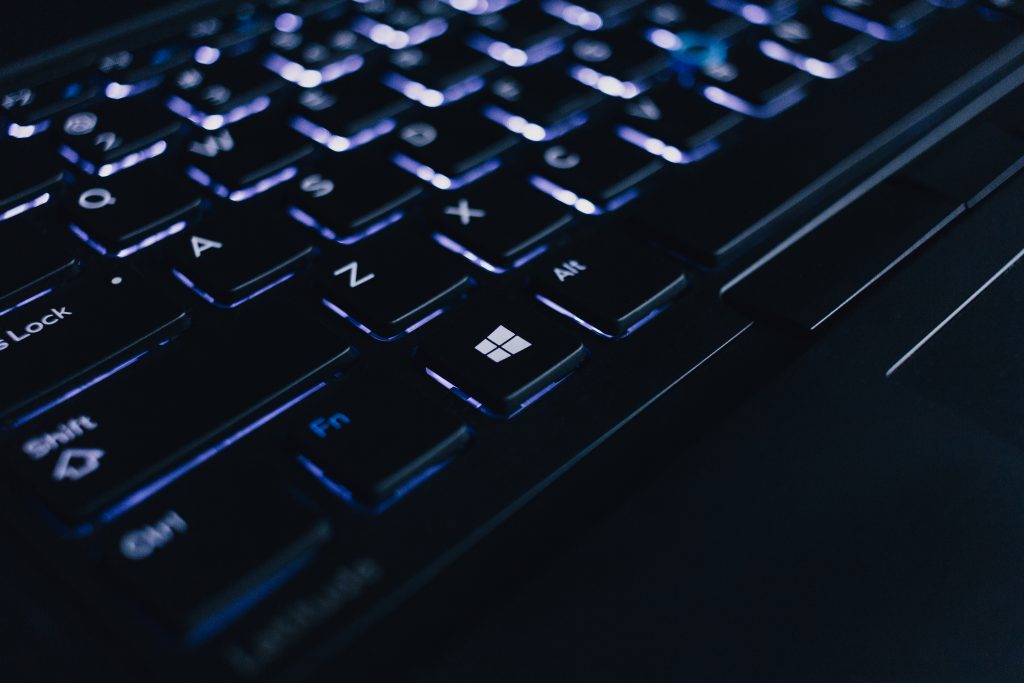What GPS Detector Is – And What it is Not
Lots of people do not understand that, electronic and digital monitoring involves monitoring a person or viewing’s actions or discussions without his or her understanding or approval by utilizing one or more electronic devices or platforms. Electronic spying is a broad term used to explain when somebody sees another person’s actions or keeps track of an individual’s conversations without his/her knowledge or authorization by utilizing several electronic devices or platforms. In a relationship where there is domestic violence or stalking, an abuser might use recording and spying technology to “keep tabs” on you (the victim) by monitoring your location and conversations. The determinant for utilizing electronic and digital surveillance might be to maintain power and control over you, to make it hard for you to have any personal privacy or a life different from the abuser, and/or to try to discover (and stop) any strategies you might be making to leave the abuser.
 Electronic and digital spying can be done by misusing cameras, recorders, wiretaps, social networks, or email. It can likewise include the misuse of keeping an eye on software application (also known as spyware), which can be set up on a computer, tablet, or a smart device to privately keep track of the gadget activity without the user’s knowledge. Spyware can permit the violent person access to everything on the phone, in addition to the ability to listen and intercept in on call. To learn more about spyware, go to the Safety Net’s Toolkit for Survivors or go to our Crimes page to see if there is a particular spyware law in your state.
Electronic and digital spying can be done by misusing cameras, recorders, wiretaps, social networks, or email. It can likewise include the misuse of keeping an eye on software application (also known as spyware), which can be set up on a computer, tablet, or a smart device to privately keep track of the gadget activity without the user’s knowledge. Spyware can permit the violent person access to everything on the phone, in addition to the ability to listen and intercept in on call. To learn more about spyware, go to the Safety Net’s Toolkit for Survivors or go to our Crimes page to see if there is a particular spyware law in your state.
It depends on whether the individual doing the recording is part of the activity or discussion and, if so, if state law then enables that recording. In most scenarios, what is typically referred to as spying, implying somebody who is not a part of your personal/private activities or discussions monitoring or records them without your knowledge, is normally unlawful. If the individual is part of the activity or conversation, in many states permit somebody to tape-record a phone call or conversation as long as one individual (consisting of the individual doing the recording) authorizations to the recording.
If Jane calls Bob, Jane may lawfully be able to record the conversation without telling Bob under state X’s law, which permits one-party consent for recordings. If state Y requires that each individual involved in the discussion know about and consent to the recording, Jane will have to first ask Bob if it is Okay with him if she tape-records their discussion in order for the tape-recording to be legal. To get more information about the laws in your state, you can examine the state-by-state guide of tape-recording laws. If you want more details on this topic, go to the website by way of pressing this link allfrequencyjammer …
 If the individual is not part of the activity or discussion:, then there are a number of criminal laws that deal with the act of listening in on a personal discussion, electronically taping an individual’s conversation, or videotaping an individual’s activities. Lawfully, a reasonable expectation of privacy exists when you are in a scenario where a typical person would anticipate to not be seen or spied on. An individual in particular public places such as in a football arena or on a main street might not fairly have an expectation of privacy, however a person in his/her bedroom or in a public washroom stall generally would.
If the individual is not part of the activity or discussion:, then there are a number of criminal laws that deal with the act of listening in on a personal discussion, electronically taping an individual’s conversation, or videotaping an individual’s activities. Lawfully, a reasonable expectation of privacy exists when you are in a scenario where a typical person would anticipate to not be seen or spied on. An individual in particular public places such as in a football arena or on a main street might not fairly have an expectation of privacy, however a person in his/her bedroom or in a public washroom stall generally would.


 The way in which does via the internet harassment vary from on the internet tracking (cyberstalking)? On the net harassment and via the internet stalking (cyberstalking) look like each other and often happen at the same time, however the ordinances covering each habits can differ. Cyberstalking ordinances usually require evidence that the abuser’s bothering behaviors made you feel frightened that you or another person remained in instant physical risk, and that the abuser knew his/her actions would make you feel that way. Cyberstalking mandates also typically need evidence that the abuser participated in a “course of conduct” which is more than one occurrence.
The way in which does via the internet harassment vary from on the internet tracking (cyberstalking)? On the net harassment and via the internet stalking (cyberstalking) look like each other and often happen at the same time, however the ordinances covering each habits can differ. Cyberstalking ordinances usually require evidence that the abuser’s bothering behaviors made you feel frightened that you or another person remained in instant physical risk, and that the abuser knew his/her actions would make you feel that way. Cyberstalking mandates also typically need evidence that the abuser participated in a “course of conduct” which is more than one occurrence. Numerous jurisdictions’ criminal threat regulations don’t specifically talk about the use of technology, they just require that the threat be communicated in some method (which might include in individual, by telephone, or utilizing text messages, internet mail, messaging apps, or social media). On-line threats don’t necessarily have to include words. A pic posted on your Facebook page of the abuser holding a weapon might be thought about a threat.
Numerous jurisdictions’ criminal threat regulations don’t specifically talk about the use of technology, they just require that the threat be communicated in some method (which might include in individual, by telephone, or utilizing text messages, internet mail, messaging apps, or social media). On-line threats don’t necessarily have to include words. A pic posted on your Facebook page of the abuser holding a weapon might be thought about a threat. What can I do to make certain I am safeguarded if I utilize connected devices? In order to try to use connected gadgets and cyber-surveillance securely, it can be practical to understand precisely how your gadgets connect to one another, what information is offered remotely, and what security and personal privacy features exist for your technological know-how. If a device starts running in a method that you understand you are not managing, you may possibly want to disconnect that device and/or remove it from the network to stop the activity. You might just be able to learn more about how to disconnect or remove the gadget by checking out the device’s handbook or speaking with a customer service agent.
What can I do to make certain I am safeguarded if I utilize connected devices? In order to try to use connected gadgets and cyber-surveillance securely, it can be practical to understand precisely how your gadgets connect to one another, what information is offered remotely, and what security and personal privacy features exist for your technological know-how. If a device starts running in a method that you understand you are not managing, you may possibly want to disconnect that device and/or remove it from the network to stop the activity. You might just be able to learn more about how to disconnect or remove the gadget by checking out the device’s handbook or speaking with a customer service agent. In addition, an online stalker might abuse innovation that controls your home to separate you from others by threatening visitors and blocking physical gain access to. An abuser might remotely control the clever locks on your house, restricting your ability to leave the house or to return to it. A video doorbell could be utilized not only to monitor who comes to the door, but to pester them from another location or, in mix with a smart lock, avoid them from going into your house. You can likewise see a short video on this topic.
In addition, an online stalker might abuse innovation that controls your home to separate you from others by threatening visitors and blocking physical gain access to. An abuser might remotely control the clever locks on your house, restricting your ability to leave the house or to return to it. A video doorbell could be utilized not only to monitor who comes to the door, but to pester them from another location or, in mix with a smart lock, avoid them from going into your house. You can likewise see a short video on this topic. In order to try to use linked gadgets and cyber-surveillance securely, it can be useful to understand precisely how your gadgets link to one another, what info is available from another location, and what security and personal privacy features exist for your technology. If a device begins running in a way that you know you are not managing, you may desire to disconnect that device and/or remove it from the network to stop the activity. You might be able to discover more about how to remove the gadget or detach by checking out the gadget’s manual or talking to a customer support agent.
In order to try to use linked gadgets and cyber-surveillance securely, it can be useful to understand precisely how your gadgets link to one another, what info is available from another location, and what security and personal privacy features exist for your technology. If a device begins running in a way that you know you are not managing, you may desire to disconnect that device and/or remove it from the network to stop the activity. You might be able to discover more about how to remove the gadget or detach by checking out the gadget’s manual or talking to a customer support agent. Many individuals do not understand that, electronic surveillance involves seeing or keeping track of a person’s actions or conversations without his or her understanding or approval by utilizing one or more electronic and digital devices or platforms.
Many individuals do not understand that, electronic surveillance involves seeing or keeping track of a person’s actions or conversations without his or her understanding or approval by utilizing one or more electronic and digital devices or platforms.  If Jane calls Bob, Jane might lawfully be able to tape the discussion without informing Bob under state X’s law, which allows one-party authorization for recordings. If state Y requires that each person involved in the discussion know about and consent to the recording, Jane will have to first ask Bob if it is OK with him if she tapes their conversation in order for the tape-recording to be legal. To get more information about the laws in your state, you can examine the state-by-state guide of recording laws. A great deal more information is available, if you need it, simply click on the web link here
If Jane calls Bob, Jane might lawfully be able to tape the discussion without informing Bob under state X’s law, which allows one-party authorization for recordings. If state Y requires that each person involved in the discussion know about and consent to the recording, Jane will have to first ask Bob if it is OK with him if she tapes their conversation in order for the tape-recording to be legal. To get more information about the laws in your state, you can examine the state-by-state guide of recording laws. A great deal more information is available, if you need it, simply click on the web link here  Selecting tһe Perfect Peristaltic Pump Tubing fοr Laboratory Applications
Selecting tһe Perfect Peristaltic Pump Tubing fοr Laboratory Applications